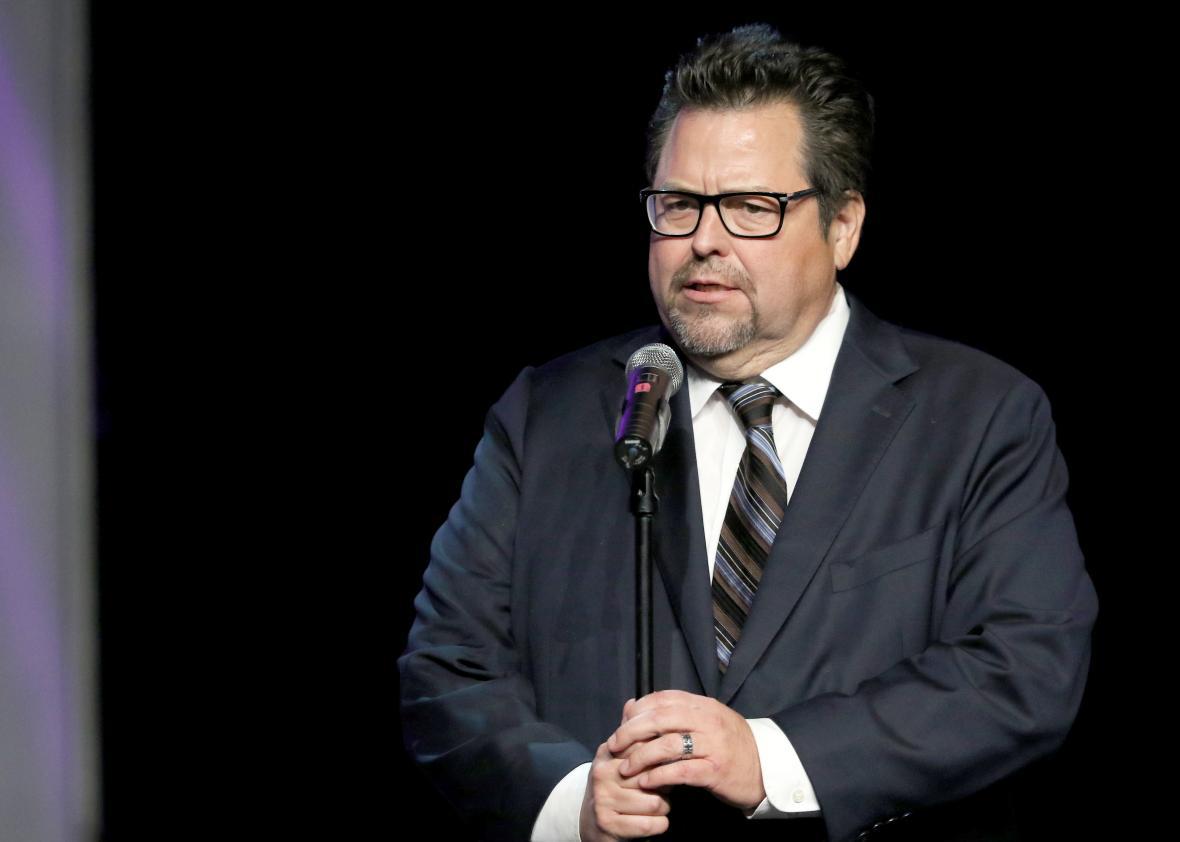The “primary focus” of the 13-year-old CBS Diversity Sketch Comedy Showcase “is to provide exposure, access and opportunities for talented and motivated diverse writers and performers,” according to its website. What the site doesn’t specify, however, is what you’ll reportedly have to endure in order to gain that exposure and access once you make it into the highly coveted program: racism, misogyny, and homophobia, apparently. In an investigation published on Friday, Vulture’s Maria Elena Fernandez spoke with aspiring writers and actors who have participated in the program in recent years and uncovered quite a few disturbing stories about the initiative’s former director Rick Najera and casting director Fern Orenstein. (Last month, Najera resigned from the position in the wake of sexual harassment claims made against him, which he referred to as “deliberate and cruel defamations” in a press statement.)
According to Fernandez’s sources, program participants were frequently subjected to demeaning language from Najera and Orenstein—the latter reportedly called people based on their ethnicity (“Jew girl,” “Mexican girl”) and told one woman that they “already [had] a fat girl” and didn’t need another one, among other instances detailed in the piece. Najera, for his part, is said to have told students in the 2015 season that the reason there were so many white guy writers in their showcase was because “We just want to make sure the show will be funny.” Other participants (most spoke to Fernandez under the condition of anonymity) recalled being forced to play baffling, outdated stereotypes—to “act foreign,” “black it up,” to twirl (if you were gay).
In 2015 I reported on the diversity writing programs at a couple of the major TV networks. (I interviewed Tiffany Smith-Anoa’i, the executive vice president of diversity at CBS, for the story, specifically about their Diversity Writers Mentoring program—which is separate from the Sketch Comedy Showcase—though our conversation never made it into my final reported piece. She declined to speak to Fernandez.) A few writers of color I spoke with shared uncomfortable accounts of feeling out of place and occasionally unwanted in the writers’ rooms they sat in on. There were some groanworthy stories about colleagues making subtly racist or misogynistic comments. But the stories told about CBS’ comedy showcase take the annoying shared experiences that every underrepresented demo encounters when they are in the minority and exaggerates them comically: A program that’s supposed to serve underrepresented artists instead reportedly degraded them on a regular basis, functioning as a real-life, not at all satirical version of “Black Acting School.” In allegedly forcing their participants to play up stereotypes, Najera and Orenstein revealed a fundamental problem at the heart of many of these diversity programs—an inadvertent reinforcement of tokenism and othering.
The most startling part about Fernandez’s story is that these egregious issues have been an “open secret” since the program began 13 years ago. Crazy Ex-Girlfriend co-creator and star Rachel Bloom makes a cameo in the piece and admits she heard many of these kinds of stories from her inner circles; she spoke with someone in human resources (CBS Studios produces her show) and provided participants with proper steps to file complaints via her Facebook page. But as we’ve seen so clearly over the past few weeks in the wake of Weinstein, it’s easy to understand why the program has been able to carry on as it allegedly has for all these years—these are people’s careers we’re talking about here, and by the very nature of the program, they’re artists who haven’t yet found steady success. Speaking up back then could have hindered any hopes of advancement. (Najera and Orenstein declined to speak to Vulture, but CBS did say they’ve “taken significant steps” toward addressing the concerns since they were brought to their attention.)
The Vulture piece ends with the anecdote that 12 participants landed agents or managers based on the showcase, and one former participant likens her experience to having a (romanticized) love-hate relationship with that testy, terrible, exciting, beloved city known as New York. But is it too much to ask that the one place that is ostensibly supposed to be welcoming and encouraging to aspiring marginalized writers and performers not make its inhabitants feel shitty about themselves in the process?
